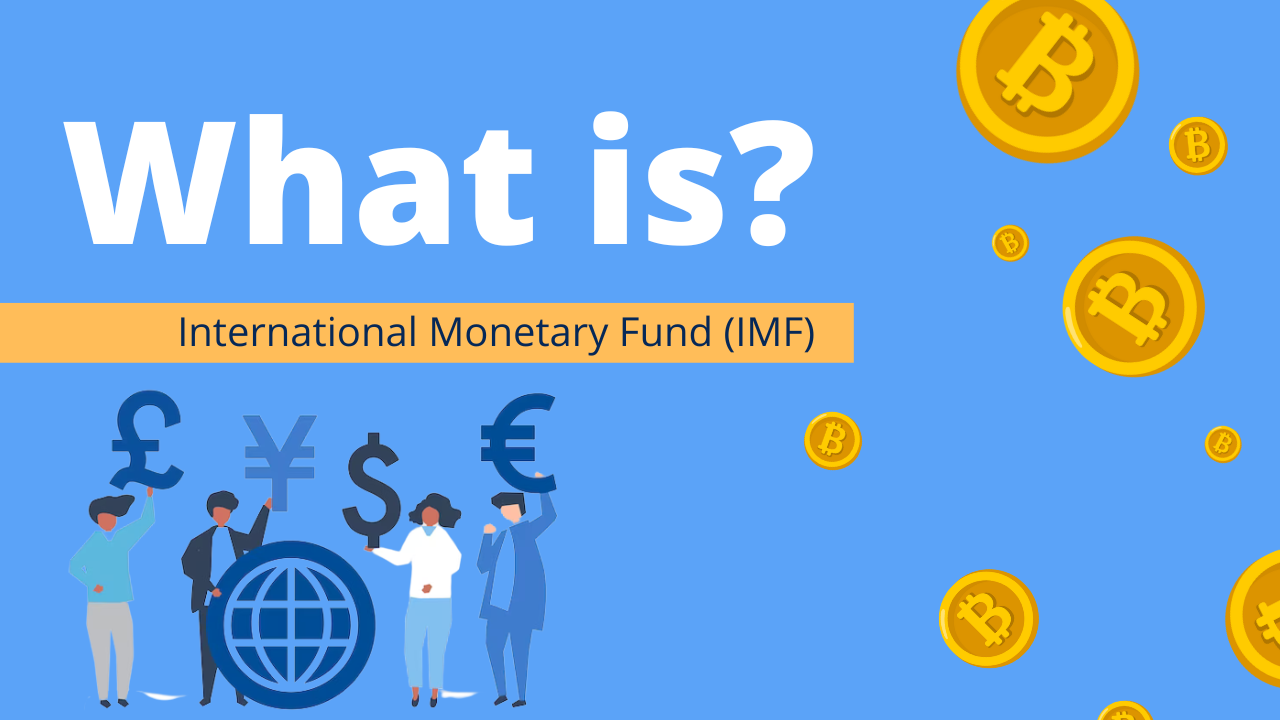Table of Contents
- Introduction
- The Origins of the International Monetary Fund
- Aims and objectives of the IMF
- Member States and Governance Structure
- Functions of the IMF
- Criticisms and Controversies
- Recent Initiatives and Future Challenges
- Summary
- FAQs
- How does the IMF differ from the World Bank?
- Can a country leave the IMF?
- How does the IMF address financial crises?
- Does the IMF provide funding to developed countries?
- How does the IMF support poverty reduction efforts?
- What is the IMF’s stance on debt relief?
- How does the IMF contribute to global financial stability?
Introduction

The International Monetary Fund (IMF) is a prominent global financial institution that plays a critical role in maintaining stability in the international monetary system.
With its origins dating back to the aftermath of the Great Depression, the IMF has evolved to become a key player in managing financial crises, promoting economic growth, and addressing global challenges. In this article, we will delve into the history, functions, impact, controversies, and future challenges faced by the IMF.
The Origins of the International Monetary Fund
Birth from the ashes of the Great Depression
The IMF traces its roots to the catastrophic economic downturn of the 1930s, commonly known as the Great Depression. In the wake of the widespread economic turmoil and the collapse of global trade, policymakers recognized the need for a global institution that could promote stability and cooperation among nations.
Creation at the Bretton Woods Conference
The establishment of the IMF came to fruition in 1944 at the historic Bretton Woods Conference held in New Hampshire, United States. Aiming to design a post-war international economic framework, the conference brought together delegates from 44 allied nations. The IMF was envisioned as an organization responsible for fostering economic stability by facilitating cooperation, financial assistance, and monetary management.
Aims and objectives of the IMF
At its core, the IMF operates with the primary goal of promoting global economic stability and sustaining balanced and sustainable economic growth. To achieve these objectives, the IMF takes on various roles and functions.
Member States and Governance Structure
Membership and eligibility criteria
The IMF’s membership comprises 190 countries around the world. As an inclusive institution, it welcomes any sovereign nation willing to adhere to its principles and financial obligations. Membership benefits countries by providing access to financial assistance, expertise, and policy advice.
Quota system and voting power
To ensure fair representation and resource allocation among member states, the IMF employs a quota system. Quotas are determined by a country’s economic size, openness, and financial soundness, among other factors. The voting power of each member is proportionate to its quota, giving more weight to countries with greater economic might.
Executive Board and Managing Director
The Executive Board, composed of representatives from member countries, holds decision-making powers within the IMF. The Managing Director, appointed by the Executive Board, leads the institution and oversees its day-to-day operations.
Functions of the IMF
Promoting Global Economic Stability
- The IMF conducts surveillance and analysis of member economies to identify vulnerabilities, monitor economic policies, and provide timely advice.
- By promoting sound macroeconomic policies and coordinating global economic cooperation, the IMF aims to prevent financial crises and maintain stable exchange rates.
- The IMF assists member countries in managing capital flows, ensuring they are sustainable and favorable to economic stability.
Lending and Financial Assistance Programs
- The IMF plays a crucial role in extending financial assistance to countries facing economic and financial crises. Lending programs help countries restore stability, implement necessary reforms, and revitalize growth.
- Financial assistance from the IMF is contingent upon recipients meeting specific conditions aimed at addressing underlying structural issues and promoting sustainable economic practices.
Impact and Influence
The IMF’s Role in Developing and Emerging Economies
- The IMF’s engagement with developing and emerging economies is vital for promoting economic growth, poverty reduction, and sustainable development. Through policy advice and financial assistance, the IMF supports countries in implementing effective macroeconomic policies and structural reforms.
- The IMF addresses fiscal and structural challenges in developing nations by providing guidance on public expenditure management, taxation, financial sector development, and social safety nets.
- The IMF focuses on enhancing inclusion and development through initiatives targeting gender equality, youth employment, and social spending.
Shaping Global Economic Policies
- The IMF exerts influence on national economic policies by providing recommendations, technical expertise, and policy guidance to member countries.
- Collaboration with other international organizations, such as the World Bank and the World Trade Organization, allows the IMF to coordinate efforts in addressing global challenges and ensuring policy coherence.
- Advancing global economic coordination is another important aspect of the IMF’s role, involving fostering cooperation between countries, coordinating exchange rate policies, and facilitating international monetary transactions.
Criticisms and Controversies
Conditionality and Austerity Measures
- The IMF’s conditional loans have been subject to significant criticism. Critics argue that strict conditions attached to financial assistance often lead to austerity measures, which can have adverse effects on social welfare and exacerbate inequality.
- Debates surrounding conditional loans highlight the tension between the IMF’s pursuit of economic stability and the need to address social and developmental challenges faced by borrowing countries.
- Calls for reform and alternative approaches to conditionality have emerged, advocating for a more comprehensive consideration of social and environmental factors.
Lack of Representation and Voting Power Disparities
- The quota system, used to determine voting power and resource allocation, has been criticized for its skewed representation in favor of developed countries. Developing nations often lack adequate influence and voting power within the IMF.
- Addressing underrepresentation of developing nations remains a significant challenge, with proposals for quota reforms to rebalance voting power and decision-making authority.
- Initiatives to enhance the voice and participation of developing countries in IMF governance have gained momentum, but progress towards greater representation remains a contentious issue.
Transparency and Accountability
- Transparency in the IMF’s decision-making processes has been a subject of concern. Critics argue that increased transparency is necessary to ensure accountability and build trust with member countries and the public.
- Calls for greater disclosure of information related to loan conditions, policy advice, and surveillance activities have prompted the IMF to embark on transparency reforms and initiatives.
- Ongoing efforts to enhance transparency and accountability aim to strengthen the IMF’s legitimacy and effectiveness as a global financial institution.
Recent Initiatives and Future Challenges
Responding to Global Financial Crises
- The IMF played a critical role during the 2008 financial crisis, providing financial support and policy advice to help countries navigate the tumultuous period.
- Amidst the COVID-19 pandemic, the IMF swiftly responded by implementing emergency financing facilities and debt relief initiatives to assist member countries in mitigating the economic fallout.
- Lessons learned from past crises and the ongoing pandemic will inform the IMF’s strategies for managing future crises and ensuring global financial stability.
Climate Change and Sustainable Development
- Recognizing the urgency of addressing climate change and promoting sustainable development, the IMF has increasingly focused on incorporating environmental factors into its policy advice and lending programs.
- Macroeconomic policies are being adapted to consider environmental sustainability, including measures to decarbonize economies, encourage renewable energy investments, and promote green finance.
- Collaboration between the IMF, member countries, and other stakeholders is vital in achieving the global Sustainable Development Goals and tackling climate change challenges.
Digital Currencies and Technological Advancements
- The rising prominence of digital currencies and technological innovations has prompted the IMF to assess their implications on global finance.
- The IMF recognizes the potential benefits of blockchain, fintech, and digital currencies but emphasizes the need for regulatory frameworks to safeguard financial stability, consumer protection, and privacy.
- Preparing for the digital future of the financial sector requires coordinated efforts, policy frameworks, and international cooperation, areas in which the IMF plays an active role.
Summary
The IMF’s Role in a Globalized Economy
- As a global financial stabilizer, the IMF plays a critical role in promoting economic stability and growth.
- Through its functions of surveillance, lending programs, and collaboration, the IMF contributes to global financial stability, poverty reduction, and sustainable development.
- However, the IMF is not without its criticisms and controversies, particularly regarding conditionality, representation, transparency, and accountability.
- Looking ahead, the IMF faces ongoing challenges in managing financial crises, addressing climate change, adapting to technological advancements, and ensuring its effectiveness in a rapidly changing world.
FAQs
How does the IMF differ from the World Bank?
- While the IMF focuses on macroeconomic stability, exchange rates, and monetary issues, the World Bank primarily focuses on borrowing countries’ long-term development projects, poverty reduction, and social programs.
Can a country leave the IMF?
- Yes, a country can voluntarily withdraw its membership from the IMF. However, this decision can have implications in terms of losing access to financial assistance and technical support.
How does the IMF address financial crises?
- The IMF addresses financial crises through various tools, including financial assistance programs, policy conditionality, debt restructuring, and technical assistance.
Does the IMF provide funding to developed countries?
- In certain circumstances, the IMF can provide financial assistance to developed countries facing severe economic challenges. However, the eligibility criteria for such funding depend on the specific circumstances and need.
How does the IMF support poverty reduction efforts?
- The IMF supports poverty reduction efforts through policy advice, technical assistance, and lending programs that emphasize inclusive growth, social safety nets, and targeted interventions for vulnerable populations.
What is the IMF’s stance on debt relief?
- The IMF actively engages in debt relief programs and policies, with a focus on helping countries experiencing unsustainable debt burdens. Debt relief initiatives aim to alleviate economic hardships and foster long-term economic stability.
How does the IMF contribute to global financial stability?
- The IMF contributes to global financial stability through its role in monitoring and assessing economic vulnerabilities, providing financial assistance during crises, promoting policy coordination, and fostering cooperation among member countries.
Follow us on our Instagram – @squarebox.in
Read more interesting articles and blog. – Blogs




